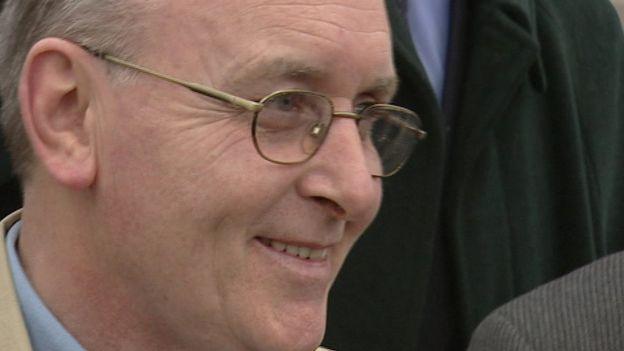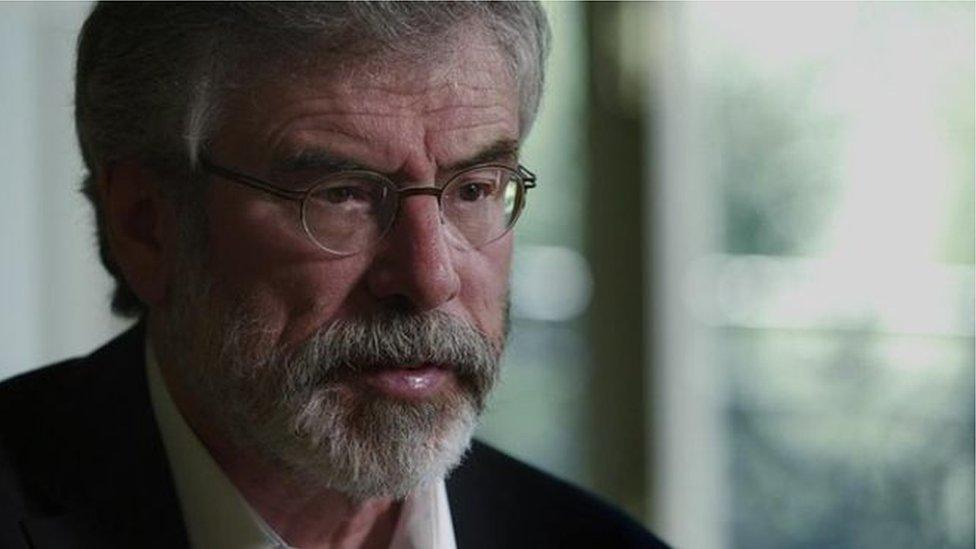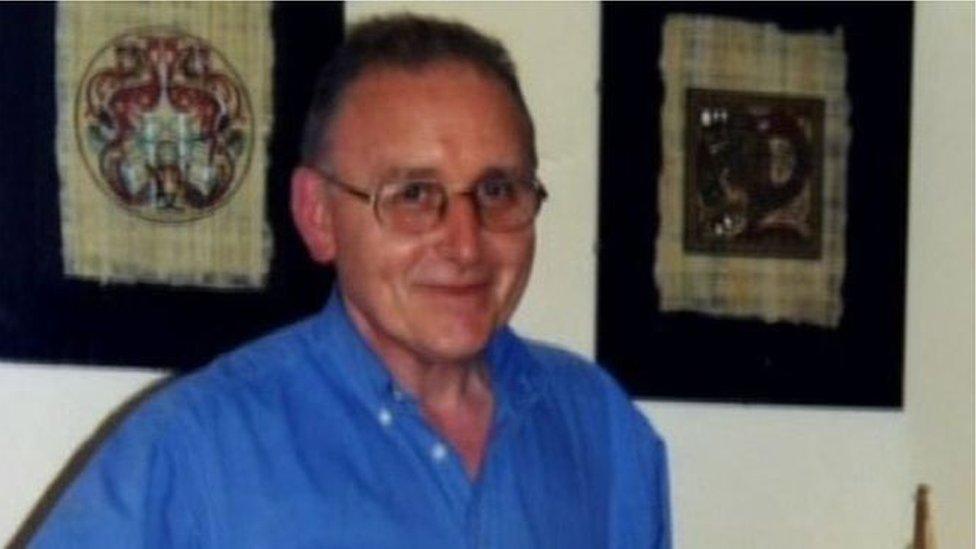Did state agents nudge the IRA towards peace?
- Published

BBC Spotlight spoke to an informer who said he believed Gerry Adams sanctioned Denis Donaldson's murder
Gerry Adams has denied any involvement in sanctioning Denis Donaldson's murder.
Martin McGuinness says the claims made by an alleged agent inside the IRA on this week's Spotlight programme were "about as credible as Walter Mitty".
By contrast the Ulster Unionist Party urges the Sinn Féin President to take legal action against the BBC and if not to explain why not.
The TUV is urging the Gardaí (Irish police) to interview Mr Adams about the murder of Mr Donaldson just over ten years ago.
Aside from the claims around the Donaldson murder, the most interesting aspect of the Spotlight report was the argument that "agents of influence" were so pernicious within the republican movement that they could be credited with playing a major role in nudging Sinn Féin and the IRA along the path of ceasefires and political deals.
'The intelligence war'
The former Assistant Chief Constable and head of RUC Special Branch Raymond White told Spotlight's Jennifer O'Leary the security forces had won "the intelligence war", but lost the "propaganda war".
It's not the first time an argument like this has been made.
The academics John Bew and Martyn Frampton and the Spanish journalist Iñigo Gurruchaga advanced an argument in their 2009 book 'Talking to Terrorists' that the peace process was highly dependent not just on dialogue but also on "the role of state actors, intelligence agencies, hard power and the wider democratic process".
In an article in 2012 Bew and Frampton argued that "in some instances, the deployment of 'hard power' by the British state exacerbated the conflict and proved counter-productive. Ultimately, however, we conclude that intelligence-led counter-terrorism operations did make a significant contribution to ending the situation."
Others have taken a different view, arguing that the security forces' desire to keep some of their assets in play may ultimately have prolonged the violence .

The Sinn Féin president Gerry Adams denies any role in the murder of former Sinn Féin member Denis Donaldson, who was also working for the security forces
In his King's College London University thesis, "Informers, Agents, the IRA and British Counter-Insurgency Strategy during the Northern Ireland Troubles", Thomas Leahy concluded that "the majority of evidence ... suggests that informers and agents did not influence the IRA or Sinn Féin towards ceasefires to any great extent during the conflict".
Leahy argues that the "peace process was not solely about the British state pushing and pulling republicans into the peace process. In fact, and this is the crucial point, it was the Irish people who gradually encouraged the Provisional republican movement towards peace."
This week's Spotlight should provide some more grist to the mill of this argument.
Coincidentally, last weekend I was talking to Jonathan Powell, who also wrote a book called 'Talking to Terrorists'. In fact the Bew Frampton approach was to some extent a counter blast to Powell's overriding emphasis on the importance of dialogue.
Thanks to the blogger Alan Meban you can see some of our wide ranging conversation on conflict resolution and more here on YouTube, external. The interview was one of a series of events hosted by the BBC and the National Trust at the splendid Mount Stewart stately home on the Ards Peninsula.
- Published21 September 2016
